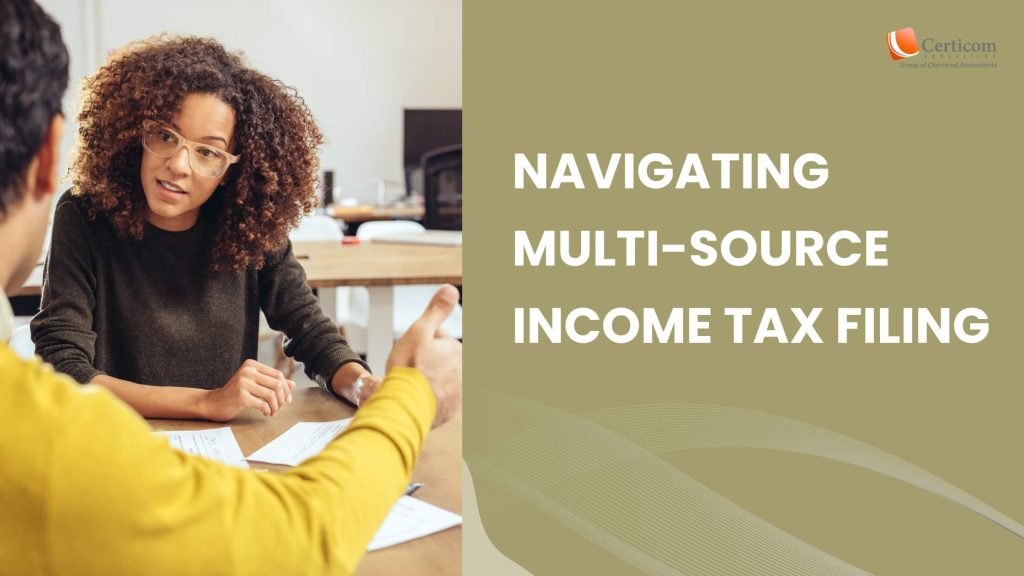Navigating Income Tax Filing with Multiple Income Sources

Starting early on tax preparations, especially when managing multiple income sources, is crucial. Choosing the right ITR form is the first step towards accurate tax filing, which is particularly important for freelancers, moonlighters, and others with diverse income streams.
Simplifying Tax Filing for Single Income Source
For individuals with a single income source, particularly salary, tax filing is relatively straightforward. The ITR-1 form, designed for salaried individuals, is known for its ease of use. Employers typically provide Form 16, which includes most of the necessary details for pre-filling the Income Tax Return (ITR) form. This simplicity often means fewer deductions and calculations for those earning solely from salary.

Tackling Multiple Income Sources
While single-source income filing is simple, many individuals earn from various sources, complicating the process. Here’s how to effectively manage tax filing with multiple income sources:
1. Selecting the Appropriate ITR Form
Depending on your income sources, you may need to use ITR-2, ITR-3, or another relevant form, as ITR-1 may not suffice for complex income types.
2. Collecting Essential Documents
Gather specific documents for each income source:
- Form 16 for salary income
- Rental agreements for rental income
- Investment receipts for dividends
Form 26AS is also crucial as it shows all tax deducted at source (TDS) throughout the year.
3. Assessing Income to Calculate Tax
Calculate earnings from each source and aggregate them to determine your total taxable income. Each income type may have different tax implications.
4. Considering Deductions and Exemptions
Identify potential deductions and exemptions to reduce your tax burden. Ensure you leverage all available opportunities to save on taxes.
Overcoming Challenges in Tax Filing
Filing ITRs with multiple income sources can be daunting, especially for those unfamiliar with tax terminology and regulations. Here’s why it can be challenging:
1. Variety of ITR Forms
With seven distinct forms, each tailored to specific eligibility criteria, selecting the right form can be confusing, particularly with diverse income sources.

2. Calculating Income and Taxes
Each income source has unique tax considerations. Understanding concepts like capital gains and business income calculations, and how they differ from salary income, can be complex.
3. Deductions and Exemptions
Identifying eligible deductions and exemptions and accurately computing them requires a solid grasp of tax regulations. Missing these opportunities can result in paying more tax than necessary.
4. Document Management
Maintaining records for each income source, such as investment statements, rental agreements, or receipts, is essential. Keeping track and ensuring you have all necessary documents can be challenging.
Seeking Professional Help
Ultimately, the best approach depends on your familiarity with tax processes and the complexity of your income streams. If you find the process overwhelming, consulting a tax advisor or Chartered Accountant can ensure accurate and efficient filing of your ITR.
Related Post
Foreign Tax Credit in India: A Guide for NRIs
Top 10 Tax Filing Rules for FY 2024-25
Book A One To One Consultation Now For FREE
How can we help? *




